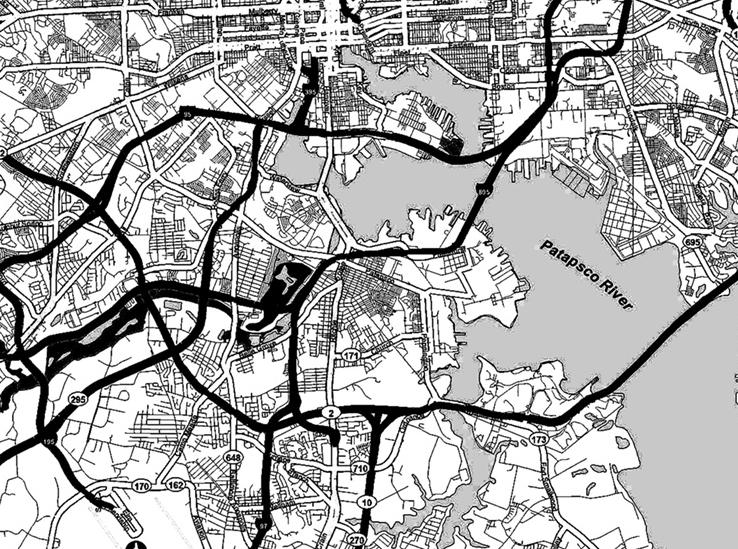














BY PAMELA LANGHAM, ESQ.
A RECENT RULING by the U.S. Fourth Circuit Court of Appeals has caught the attention of the legal community. After losing a challenge to a geofence warrant on July 9, 2024, in the case of United States v. Chatrie, 107 F.4th 319 (4th Cir. 2024), Okello Chatrie filed a petition for rehearing en banc. The court granted the petition on November 1, 2024. See United States v. Chatrie, 2024 WL 4648102, No. 22-4489 (4th Cir. Nov. 1, 2024). The case has been scheduled for the Fourth Circuit Court of Appeals (Fourth Circuit or Court) next available session. This article summarizes the earlier opinion issued on July 9, 2024.



BY PAMELA LANGHAM, ESQ.
A RECENT RULING by the U.S. Fourth Circuit Court of Appeals has caught the attention of the legal community. After losing a challenge to a geofence warrant on July 9, 2024, in the case of United States v. Chatrie, 107 F.4th 319 (4th Cir. 2024), Okello Chatrie filed a petition for rehearing en banc. The court granted the petition on November 1, 2024. See United States v. Chatrie, 2024 WL 4648102, No. 22-4489 (4th Cir. Nov. 1, 2024). The case has been scheduled for the Fourth Circuit Court of Appeals (Fourth Circuit or Court) next available session. This article summarizes the earlier opinion issued on July 9, 2024.
Google's "Location History" is an optional setting that tracks a user's location via their mobile devices. Users must enable this feature, which is off by default, by taking several steps, including enabling location sharing and opting in through their Google account. Once activated, Google tracks the user's location using GPS and other inputs, storing this data in a repository called the "Sensorvault." This data can be used for various user benefits and advertising purposes.
Law enforcement can request this data through "geofence warrants," which compel Google to provide location data for all users within a specific geographic area during a particular time. Google's response to these warrants involves a three-step process: providing anonymized data, allowing law enforcement to narrow down the list of users; and, finally, disclosing the identities of the relevant users.
On May 20, 2019, a robbery occurred at a credit union in Virginia. The suspect carried a cell phone during the robbery. After initial investigative efforts failed, including looking at security footage and conducting witness interviews, law enforcement obtained a geofence warrant. The warrant covered a 150-meter radius around the credit union and required Google to provide location data for devices within this area during the robbery. Google identified 19 accounts, and further investigation narrowed it down to three phone accounts that were in the vicinity of the robbery, including Okello Chatrie's (Chatrie) account.
Chatrie was indicted on charges related to the robbery and firearm use. He moved to suppress the evidence obtained through the geofence warrant, arguing it violated the Fourth Amendment. The U.S. District Court in the Eastern District of Virginia denied the motion to suppress, citing the goodfaith exception to the exclusionary rule. Chatrie entered a conditional guilty plea and was sentenced to 141 months' imprisonment. He appealed the decision, leading to the current case.
Chatrie’s appeal focused on arguing that law enforcement’s geofence warrant violated the Fourth Amendment’s restrictions on unreasonable searches and seizures. He also argued that the geofence warrant invaded his reasonable expectation of privacy.
The Fourth Circuit affirmed the district court’s denial of Chatrie’s motion to suppress but for a different reason. The Fourth Circuit explained that Chatrie did not have a reasonable expectation of privacy for two hours of his location history that he voluntarily shared with Google, and, therefore, law enforcement did not conduct a search.


Law enforcement can request this data through "geofence warrants," which compel Google to provide location data for all users within a specific geographic area during a particular time.
The Court started with a discussion of the Fourth Amendment’s protection against unreasonable searches and seizures. In the U.S. Supreme Court's decision in Katz v. United States, 389 U.S. 347 (1967), the Supreme Court introduced a privacy-based framework, where a search occurs if the government invades an individual's reasonable expectation of privacy. However, the Court mentioned the third-party doctrine, which limits Katz, stating that there is no legitimate expectation of privacy in information voluntarily turned over to third parties.
The Supreme Court has addressed the tension between privacy and technology in several cases, and the Fourth Circuit panel briefly discussed those rulings. In United


The recent decision by the Fourth Circuit to grant a rehearing en banc in United States v. Chatrie highlights the ongoing complexities of applying Constitutional interpretations to new technologies.
States v. Knotts, the Supreme Court ruled that short-term tracking of public movements did not constitute a search.
See 460 U.S. 276, 278–280 (1983). In United States v. Jones, 565 U.S. 400 (2012), the Supreme Court found that longterm GPS monitoring did constitute a search due to the physical trespass involved. Finally, in Carpenter v. United States, 585 U.S 296 (2018), the Supreme Court further clarified that accessing at least seven days' worth of historical cell-site location information (CSLI) without a warrant was a search, as it provided a detailed chronicle of a person's movements, revealing intimate details of their life.
Next, the Fourth Circuit discussed Leaders of a Beautiful Struggle v. Baltimore Police Department, 2 F.4th 330 (4th Cir. 2021), wherein the Court applied Carpenter to Baltimore's aerial surveillance program, which captured extensive data on individuals' movements. The Court held that prolonged tracking that reveals intimate details through habits and
patterns invades a reasonable expectation of privacy and requires a warrant.
Chatrie argued that the government conducted a search when it obtained his Location History data from Google. However, the Court disagreed, finding that the third-party doctrine applied. The government only obtained two hours' worth of Chatrie's Location History data, which was insufficient to reveal intimate details of his life. This short-term data was more akin to the public movements in Knotts, which were voluntarily conveyed to anyone who wanted to look.
Additionally, Chatrie voluntarily exposed his location information to Google by opting into Location History. This setting is optional and requires several affirmative steps to enable. Users are informed about the nature of the service and can control their data by reviewing, editing, or deleting it. Therefore, Chatrie knowingly and voluntarily


chose to allow Google to collect and store his location information, taking the risk that it could be conveyed to the government. As a result, the Court ruled that the government did not conduct a search when it obtained this information from Google.
The recent decision by the Fourth Circuit to grant a rehearing en banc in United States v. Chatrie highlights the ongoing complexities of applying constitutional interpretations to new technologies. Moreover, as reported by the MSBA in Fifth Circuit Rules Geofence Warrants Are Unconstitutional, Langham, Pamela, MSBA, September 19, 2024, the Fifth Circuit ruled in U.S v. Smith on August 9, 2024, that a geofence warrant was unconstitutional based upon similar facts. See U.S v. Smith, 110 F.4th 817 (5th Cir. 2024). As we await the resolution of Chatrie and the outcome of the en banc opinion, the MSBA and criminal lawyers will be closely monitoring the Fourth Circuit’s calendar. Finally, the rehearing may still present an opportunity for a U.S. Supreme Court resolution.


